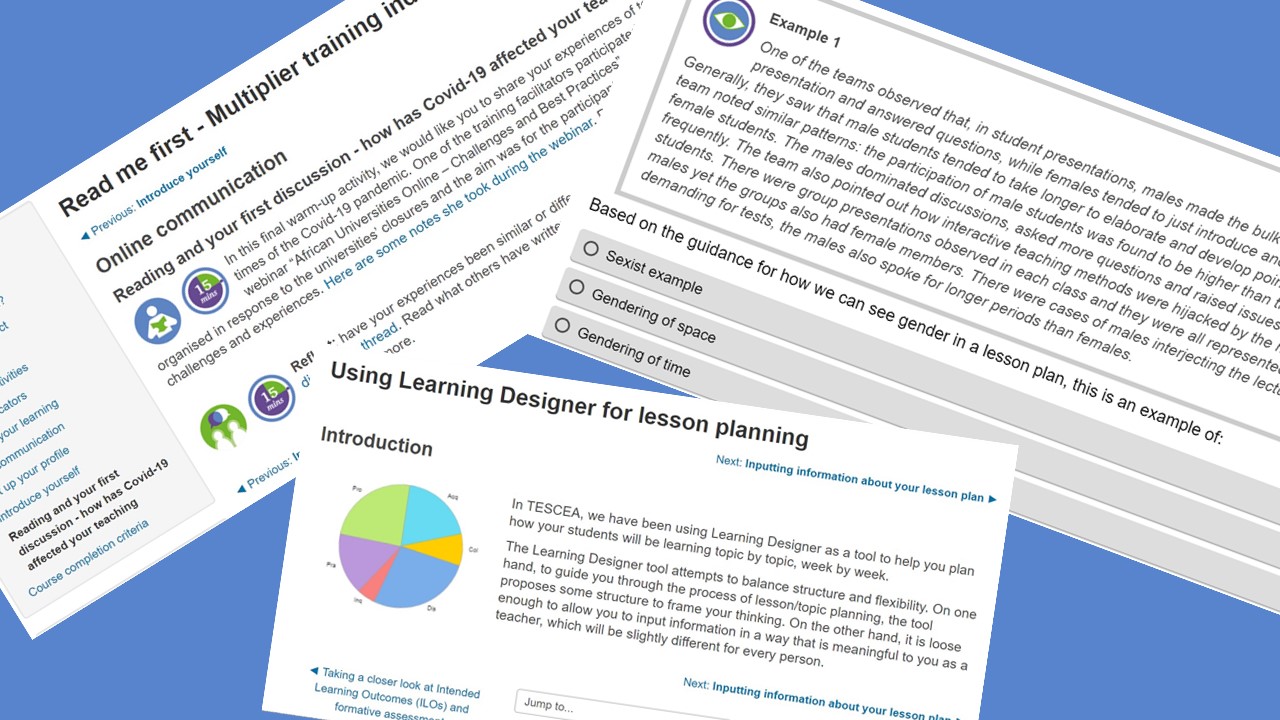
Adapting for sustainability: taking training of trainers online to continue higher education support
At the mid-point in what should have been a face-to-face workshop to strengthen future facilitators and mentors of course redesign in East African universities, Tabitha Buchner and Josie Dryden share how this work has been adapted for an online environment.
Crucial to the long-lasting impact of any project is having people who are still involved and engaged in the work after the funded project period is over. Long-term impact is particularly important with any education initiative and the Transforming Employability for Social Change in East Africa (TESCEA) partnership is no exception.
For TESCEA, which aims to support students in East Africa to be better prepared with the critical thinking and problem-solving skills they need when they graduate, much of that long-term continuation of the work comes in the form of “multipliers”.
Multipliers are members of teaching staff at the four universities involved (University of Dodoma and Mzumbe University in Tanzania and Gulu University and Uganda Martyrs in Uganda). They have gone through training in course redesign or gender-responsive pedagogy as part of the TESCEA partnership and are now committed to helping their colleagues do the same with their own courses. This is an important step towards the sustainability of the project.
Facilitating course redesign is not the same as being a participant in a course redesign workshop. It requires a deeper knowledge of the approaches and goals of the work. It also requires the development of facilitation and mentoring skills.
Around a year ago the TESCEA partnership held a multiplier workshop for course redesign multipliers and gender multipliers. This was highly participatory, building up relationships between the multipliers as they develop facilitation skills and reflect on what works best in their own contexts. The workshops we held last year were energising, as were the subsequent course redesign workshops where new multipliers began to help facilitate work with their colleagues.
Another multiplier workshop was planned for this year, to bring together multipliers from the two universities in Tanzania and the two universities in Uganda, to strengthen relationships and share ideas, to help ensure a support network to continue and grow the work.
We all know what happened next, of course: the universities closed and many of the borders closed; face-to-face workshops became impossible.
In a previous blog post we discussed the challenges of continuing multiplier training and support without meeting face-to-face. We talked about the development of an online alternative, formed out of necessity rather than because online was an ideal way to bring multipliers together.
Following that initial discussion of challenges and options, AFELT (a Kenyan TESCEA support partner) and INASP spent time fleshing out what an online alternative to face-to-face multiplier training should look like. At the time of writing, we are in the third week of the first six-week TESCEA online multiplier workshop.
The workshop includes around 40 people from the four universities. These people are a mixture of some who have done the previous multiplier training and some who have not. It is also a mixture of some people who have facilitated or helped facilitate workshops, through TESCEA or elsewhere, and some who have not. At the start of the course we identified the expected levels of experience and confidence of the participants so that we could cater for this range.
What does an online multiplier workshop cover?
As we have discussed previously, instead of trying to cover all the same content as a face-to-face workshop, we decided to focus largely on lesson planning, which is an area that multipliers had previously identified as one with a particular need for further support.
In our face-to-face work we had separated out two types of multipliers – course redesign multipliers, who would primarily focus on facilitating the course redesign process, and gender multipliers, who would bring expertise in gender-responsive pedagogy, helping ensure that the needs of all students are addressed. For an online workshop we recognised that all four universities would prefer to not run these as two separate streams. Instead, we brought these two groups of multipliers together and have geared the online workshop towards lesson planning but are weaving gender aspects throughout. We ask questions about gender within the training activities and have one facilitator who is dedicated to gender questions.
How it works
The workshop is largely based on the open-source, e-learning platform Moodle. This is a platform that many in East Africa are familiar with and that INASP has considerable experience with through our AuthorAID project, which runs online courses for researchers.
Nonetheless there is a range of experience of Moodle amongst the participants and we have not assumed familiarity. The first week of the workshop was therefore designed to ease participants into using Moodle, with a dedicated forum for Moodle-related questions and Josie as the dedicated person to help participants with technological issues on the platform.
Like a face-to-face course or workshop, we have aimed for a balance between content to listen to or read, activities for participants to do on Moodle by themselves, and discussion with each other. In lieu of the energisers that would see face-to-face workshop participants moving around a room networking or playing a silly game, we had warm-up exercises where participants went into the discussion forum to introduce themselves and talk about how COVID-19 has affected their teaching. To emulate group discussions, we have created sub-forums that work throughout the six weeks. The main focus is on improving lesson planning so paying attention to each individual participant is important. We have seven facilitators, from AFELT and INASP, to help with these discussions and to act as mentors to guide smaller groups through the next few weeks. We also have a general forum for plenary discussion.
Pandemic adaption
Using an e-learning platform with university teaching staff, as they think about adapting their own teaching and how to help others rethink their teaching, has a side benefit during this time of global pandemic. There is an opportunity to help participants think about how to take their own lessons online. In developing the workshop, we contacted experts within each of the four universities and across all the TESCEA partners, asking them if they would be willing to be involved. Some recorded videos while others have made themselves available for discussions in Moodle or to hold weekly clinics via WhatsApp or Zoom. The course also points to further resources on how to use Moodle. These are not core parts of the multiplier workshop but are optional extras that can give teaching staff some ideas and support as they think through how to continue to support their own teaching in these strange times.
As the workshop has gone on, we have been adapting in response to participants’ needs. A big challenge that has emerged has been the different contexts that Tanzanian and Ugandan university staff are now working in. Around the time that the multiplier workshop began, the Tanzanian government announced that universities in the country could reopen and that the university term would not be extended. As a result, Tanzanian teaching staff are very busy fitting extra teaching into a compressed timescale, often doing the same lectures and tutorials several times to cater for the reduced numbers allowed into classrooms at any time to preserve social distancing. In Uganda, in contrast, universities remain closed and staff are primarily teaching online.
As a result, we see differences between the two countries in terms of how and when participants can engage with the workshop. This emphasises the need to balance between synchronous and asynchronous methods of engagement in the workshop. We have designed it to be largely asynchronous because of connectivity challenges and to be most flexible around staff availability. We do have synchronous activities in the form of Zoom-based question and answer sessions; we upload recorded sessions so that those who cannot join at the time can view them later.
Adapting a highly participatory face-to-face workshop to an online setting and piloting it, all during a pandemic, was never going to be easy. Across the TESCEA partnership we are learning about what works and what doesn’t. At this halfway point we are pleased to see the ongoing engagement of many participants, particularly when faced with so many other pressures on their time at the moment. As the workshop continues and we learn together and adapt we hope that multipliers can continue to build the skills and commitment to ensure that future students in East Africa gain the soft skills they need when they graduate.
***
Transforming Employability for Social Change in East Africa (TESCEA) is helping young people in Tanzania and Uganda to use their skills and ideas to tackle social and economic problems. With partners in Tanzania, Uganda and Kenya, TESCEA supports universities, industries, communities and government to work together to create an improved learning experience for students – both women and men. This improved learning experience fosters the development of critical thinking and problem-solving skills, and allows for practical learning beyond the classroom that improves a graduate’s employability.
The TESCEA partnership is led by INASP (UK), working with Mzumbe University (Tanzania), University of Dodoma (Tanzania), Gulu University (Uganda), Uganda Martyrs University (Uganda), Association for Faculty Enrichment in Learning and Teaching (Kenya) and Ashoka East Africa (Kenya).
TESCEA is funded by the UK’s Department for International Development (DFID) as part of DFID’s SPHEIR (Strategic Partnerships for Higher Education Innovation and Reform) programme to support higher education transformation in focus countries in Sub-Saharan Africa, Asia and the Middle East.
To learn more about TESCEA, click here.

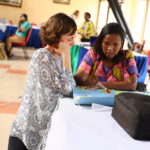 Previous Post
Previous Post Next Post
Next Post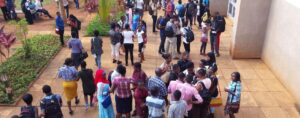
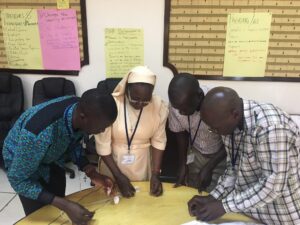
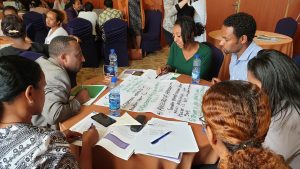
This an interesting thing to do. I have learned how sustainability in projects such as embedding activities can be done. Let;s see how we shall also adopt this approach. Many congratulations TESCEA .